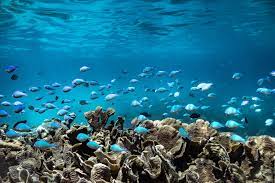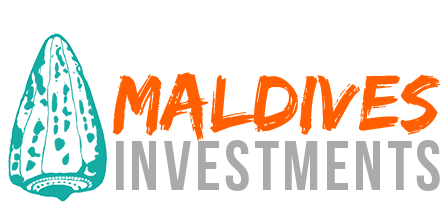
Nestled in the heart of the Indian Ocean, the Maldives, with its azure waters and vibrant marine ecosystems, is unlocking a new era of economic growth through Blue Economy initiatives. In this exploration, we delve into the opportunities and challenges of investing in the Maldives’ marine resources, uncovering how these initiatives are not only reshaping the economic landscape but also contributing to the sustainable management of one of the world’s most precious maritime environments.
1. Defining the Blue Economy:
The Blue Economy encompasses a spectrum of economic activities that leverage the sustainable use of marine resources, from fisheries and aquaculture to tourism, renewable energy, and marine biotechnology. In the Maldives, where the ocean is intricately woven into the fabric of daily life, Blue Economy initiatives are becoming a cornerstone for both economic development and environmental stewardship.
2. Sustainable Fisheries and Aquaculture:
Investing in the Maldives’ fisheries and aquaculture sector is a focal point of Blue Economy initiatives. Sustainable fishing practices, responsible management of fish stocks, and the promotion of aquaculture are key areas for investors. By aligning with international standards for sustainable fisheries, investors contribute to preserving marine biodiversity while meeting global seafood demand.
3. Marine Biotechnology and Pharmaceuticals:
The unique marine biodiversity of the Maldives holds untapped potential for marine biotechnology and pharmaceutical discoveries. Investors exploring this frontier can engage in research collaborations, bioprospecting initiatives, and the development of marine-derived products with applications in medicine, cosmetics, and biotechnology.
4. Eco-Tourism and Underwater Experiences:
The Maldives’ coral reefs and underwater landscapes make it a premier destination for eco-tourism. Blue Economy initiatives in this sector involve responsible tourism practices, such as low-impact snorkeling and diving experiences, and the establishment of marine protected areas. Investors can contribute to sustainable tourism by developing eco-friendly resorts and fostering awareness about marine conservation.
5. Renewable Energy from the Ocean:
Harnessing the power of the ocean for renewable energy is a growing Blue Economy initiative in the Maldives. Investors can explore projects involving tidal and wave energy, as well as offshore wind farms. These initiatives not only contribute to the country’s energy security but also align with its commitment to reducing carbon emissions and mitigating climate change.
6. Waste Management and Conservation:
Investments in waste management systems and conservation efforts are pivotal for maintaining the health of the Maldives’ marine ecosystems. Initiatives focusing on reducing plastic pollution, enhancing recycling infrastructure, and supporting community-based conservation projects contribute to the overall sustainability of the Blue Economy.
7. Challenges and Conservation Efforts:
While Blue Economy initiatives hold immense promise, challenges such as climate change impacts, overfishing, and habitat degradation persist. Investors are called upon to incorporate innovative solutions, such as coral reef restoration projects, climate-resilient aquaculture practices, and collaborations with local communities to ensure the sustainable future of the Maldives’ marine resources.
8. Government Support and Policy Framework:
The Maldivian government actively supports Blue Economy initiatives, evident in its policies and strategic frameworks. The National Resilience and Recovery Plan (NRRP) and the Maldives Sustainable Fisheries Development Project (MSFDP) are examples of the government’s commitment to sustainable marine resource management, providing a conducive environment for investors.
Conclusion:
Investing in the Maldives’ marine resources through Blue Economy initiatives is not just a business opportunity; it’s a commitment to the preservation of a marine wonderland. As investors explore the diverse sectors within the Blue Economy, they play a vital role in shaping a future where economic prosperity coexists harmoniously with the sustainable use and conservation of the Maldives’ precious marine resources. The Blue Economy isn’t just an investment strategy; it’s a pledge to safeguard the ocean for generations to come.







